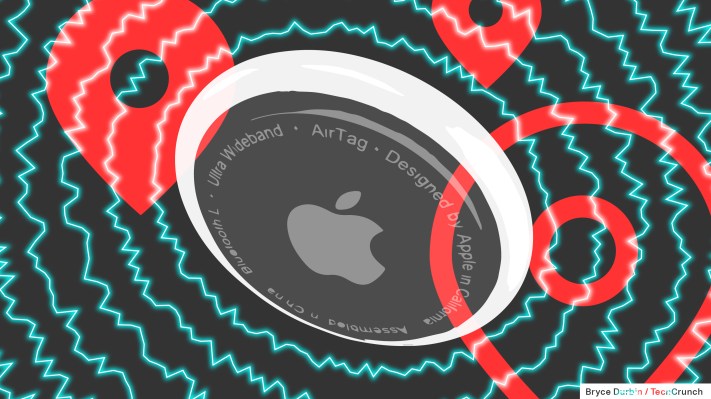After numerous cases of Bluetooth trackers like Apple’s AirTag being used for stalking or other criminal apps, Apple and Google today released a joint announcement saying they will work together to lead an industry-wide initiative to draft a specification that would alert users in the case of unwanted tracking from Bluetooth devices. The companies said they’re seeking input from other industry participants and advocacy groups in the matter, and noted that other tracker makers like Samsung, Tile, Chipolo, eufy Security and Pebblebee have also expressed interest in the draft.
The companies submitted a proposed specification as an Internet-Draft via a standards development organization, the Internet Engineering Task Force (IETF). Other interested parties are now being invited to review and comment over the next three months. After this time, Apple and Google will offer feedback and will release a production implementation of the specification by year’s end that will be supported in future versions of iOS and Android, they said.
While Apple’s AirTag wasn’t the first Bluetooth tracker on the market to present security concerns around misuse — Tile and others had existed for years — Apple’s ability to integrate AirTag with the 2 billion+ Apple devices globally, including its over 1 billion iPhones, as part of its “Find My” network, made it one of the largest players almost immediately. It also popularized the then-still niche technology of using Bluetooth trackers to find lost items, making the devices for doing so a household name.
Soon, stories began to emerge that AirTags were being used for stalking and other concerns, like car theft. Apple in February 2022 announced it would work to address some of the problems it had created with new features, including new privacy warnings, alerts and expanded documentation. Hoping to deter misuse, it also said it was actively working with law enforcement on all AirTag-related requests it receives, and confirmed it was able to provide the account details in response to a subpoena or other valid law enforcement request.
Today, the company along with Google, wants to make these safety measures more of a standard, rather than just a feature set. This includes building on the AirTag protections Apple had already released but also, critically, ensuring that users would be able to combat unwanted tracking by offering tools across both iOS and Android platforms. Today, for instance, Apple offers a Tracker Detect app for Android users, but it doesn’t work as well as Apple’s own Find My app because it requires users to actively scan for tags, rather than receive proactive warnings and alerts. The new spec, meanwhile, wants to make unwanted tracking alerts work across any platform.
Various advocacy groups praised the effort in today’s announcement, including the National Network to End Domestic Violence and the Center for Democracy & Technology. The former had been advocating for a universal standard to protect survivors from the misuse of trackers and noted, in a statement, it was ‘encouraged by this progress.” The latter referred to the move as a “welcome step” to prevent the misuse of these devices.
Google and Apple have worked together before on products that benefit their respective customer bases, including with the development of the COVID-19 tracing tool for iOS And Android users in 2020.
Just ahead of today’s announcement, AirTag had a boost of good press with news that the New York Police Department was encouraging car owners to use AirTag to prevent car theft, which increased following TikTok viral videos demonstrating hot wiring Kia and Hyundai vehicles. The city said it was also distributing 500 free AirTags to car owners, donated by the nonprofit Association for a Better New York.
“Apple launched AirTag to give users the peace of mind knowing where to find their most important items,” said Ron Huang, Apple’s vice president of Sensing and Connectivity, in a statement. “We built AirTag and the Find My network with a set of proactive features to discourage unwanted tracking — a first in the industry — and we continue to make improvements to help ensure the technology is being used as intended. This new industry specification builds upon the AirTag protections, and through collaboration with Google results in a critical step forward to help combat unwanted tracking across iOS and Android.”
“Bluetooth trackers have created tremendous user benefits, but they also bring the potential of unwanted tracking, which requires industrywide action to solve,” added Dave Burke, Google’s vice president of Engineering for Android. “Android has an unwavering commitment to protecting users, and will continue to develop strong safeguards and collaborate with the industry to help combat the misuse of Bluetooth tracking devices.”
